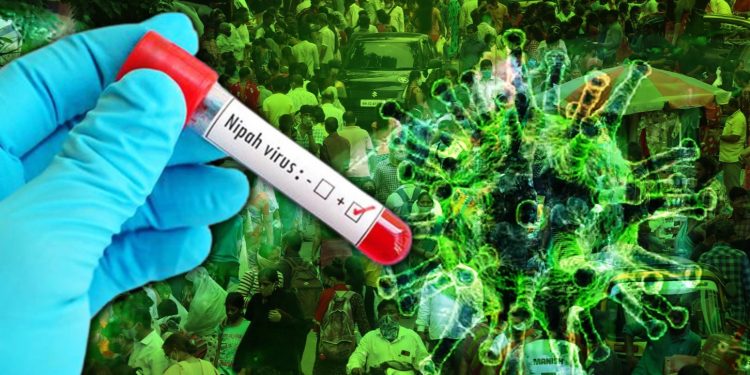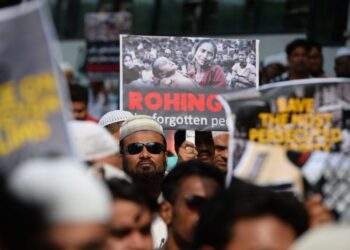The Indian Council of Medical Research (ICMR) has announced the procurement of 20 more doses of monoclonal antibody for the treatment of Nipah virus infection from Australia. During a press briefing in the national capital, ICMR Director General (DG) Rajiv Bahl revealed that India had previously acquired some doses of monoclonal antibody from Australia in 2018, and the current supply is sufficient for only 10 patients.
Dr. Bahl stressed that no patients in India have received this medicine thus far, underscoring the importance of administering it during the early stages of the infection. He noted that the use of these antibodies should be classified as “compassionate use medicine,” and the decision to administer them should involve the State government, medical professionals, and the patients’ families.
Dr. Bahl also mentioned that globally, monoclonal antibodies have been administered to 14 Nipah virus-infected patients outside India, and all of them have survived.
The ICMR DG assured that all necessary measures are being taken to contain the Nipah virus infection in Kerala. He mentioned that most of the cases are linked to contacts of a single index patient.
Furthermore, Dr. Bahl clarified that only a phase 1 trial to assess the safety of the medicine has been conducted, and efficacy trials are yet to be undertaken. Therefore, it can only be administered as compassionate use medicine.
He highlighted the significant difference in mortality rates between Nipah virus and COVID-19, with Nipah virus having a mortality rate ranging from 40% to 70%, considerably higher than COVID-19’s 2-3% mortality rate.
Responding to questions about recurring cases in Kerala, Dr. Bahl stated that the source of infection remains unclear. In 2018, it was linked to bats, but the exact transmission route from bats to humans could not be established. Similar investigations are ongoing this time, and he noted that Nipah virus cases often occur during the rainy season.
Dr. Bahl emphasised that there is currently no vaccine for Nipah virus, and its infectivity is very high. He urged people to practise social distance, wear masks, maintain personal hygiene, isolate if symptoms are identified, avoid raw food exposed to bats, and stay away from bat colonies. Stopping human-to-human contact was deemed crucial in preventing the spread of the virus.
In a recent development, Kerala has reported another confirmed case of Nipah virus infection, bringing the total number of active cases in the state to four. Among the newly infected individuals is a nine-year-old child. This brings the overall tally of Nipah virus infections in Kerala to six, with two reported deaths.
The 39-year-old patient has been placed under observation in a hospital located in Kozhikode, as stated by the state health minister’s office.
To curb the spread of the infection, the state government has implemented stringent measures. Notably, two Nipah virus-related deaths occurred in Kozhikode on August 30 and September 11.
In response, samples from 15 individuals in the high-risk category within the contact list have been sent for testing in Kerala. The contact list comprises 950 individuals, with 213 falling into the high-risk category. Additionally, the list includes 287 healthcare workers.
Four high-risk individuals are currently receiving treatment at a private hospital, while 17 people are under surveillance at the Kozhikode medical college, according to the state health department.
Union Minister of State for Health and Family Welfare, Dr. Bharati Pravin Pawar, visited the Indian Council of Medical Research – National Institute of Virology (ICMR-NIV) on September 14. She reviewed the containment measures taken in response to the virus outbreak in Kerala.
A multidisciplinary team led by Dr. Mala Chhabra has been deployed by the Union Health Ministry to assist the state in implementing public health measures to address the outbreak.
High-level teams from the Centre and ICMR-NIV, equipped with mobile units featuring BSL-3 (Biosafety Level 3) laboratories, have arrived in Kozhikode for on-ground testing.
Containment zones have been declared in nine panchayats, and new restrictions have been imposed in Kozhikode district. These measures include directives against gatherings or public events of any kind, including religious gatherings, within the containment zones.
According to the World Health Organisation (WHO), Nipah virus is transmitted by fruit bats and can be potentially fatal to both humans and animals. Alongside respiratory symptoms, it is known to cause fever, muscle pain, headaches, dizziness, and nausea.
Kerala previously experienced a Nipah virus outbreak in the Kozhikode and Malappuram districts in 2018, and in 2021, a Nipah virus case was reported in Kozhikode.











